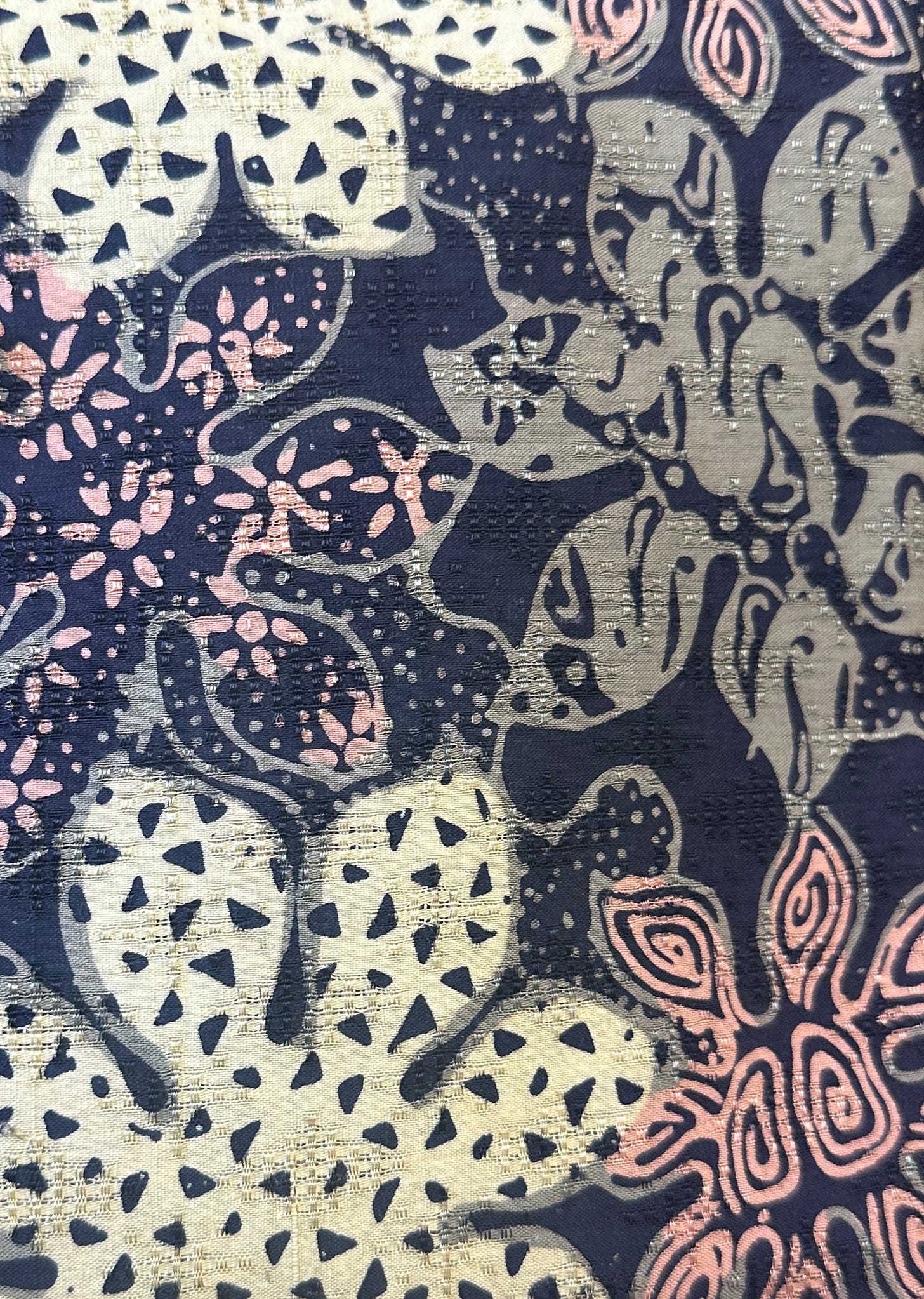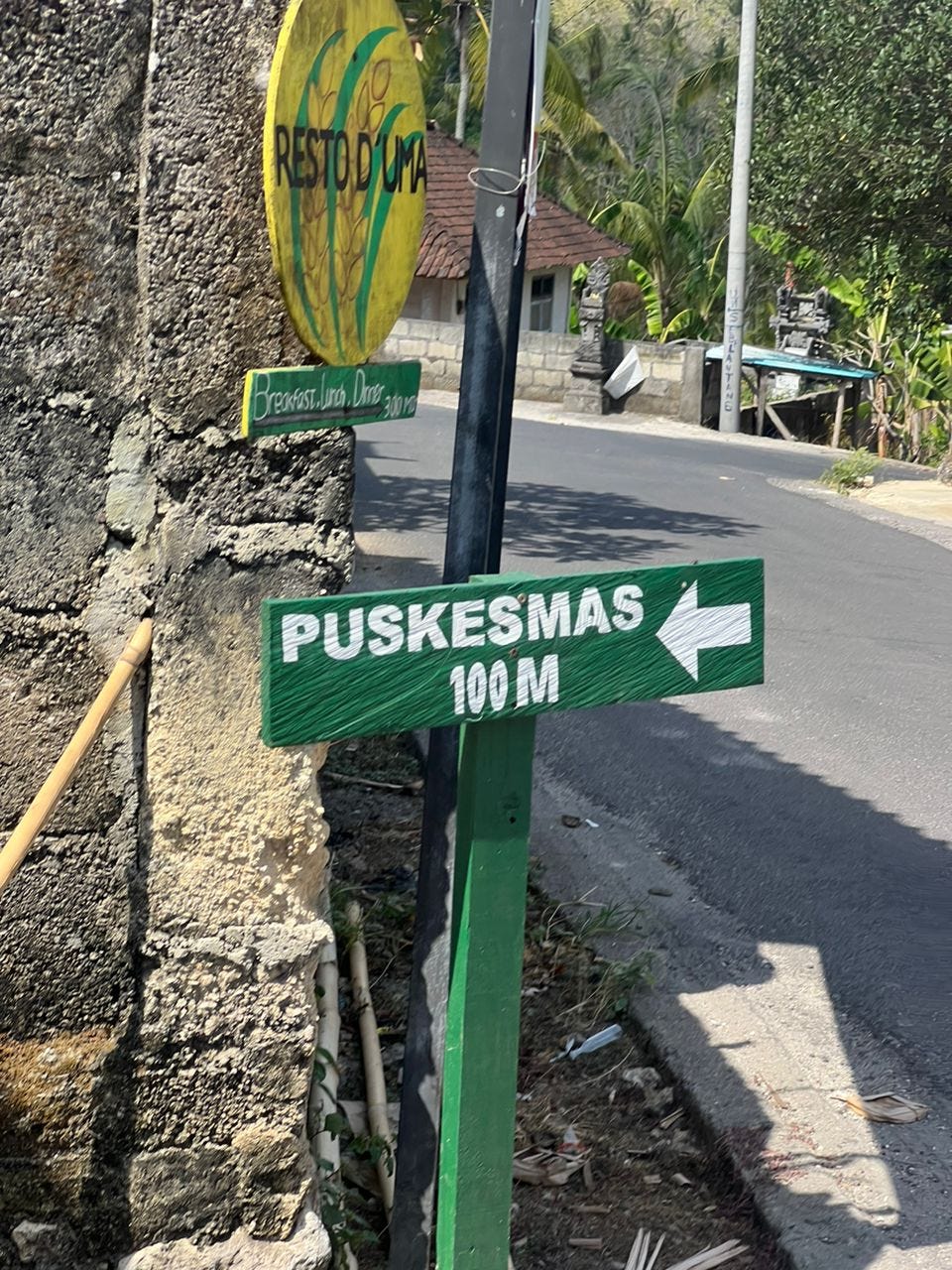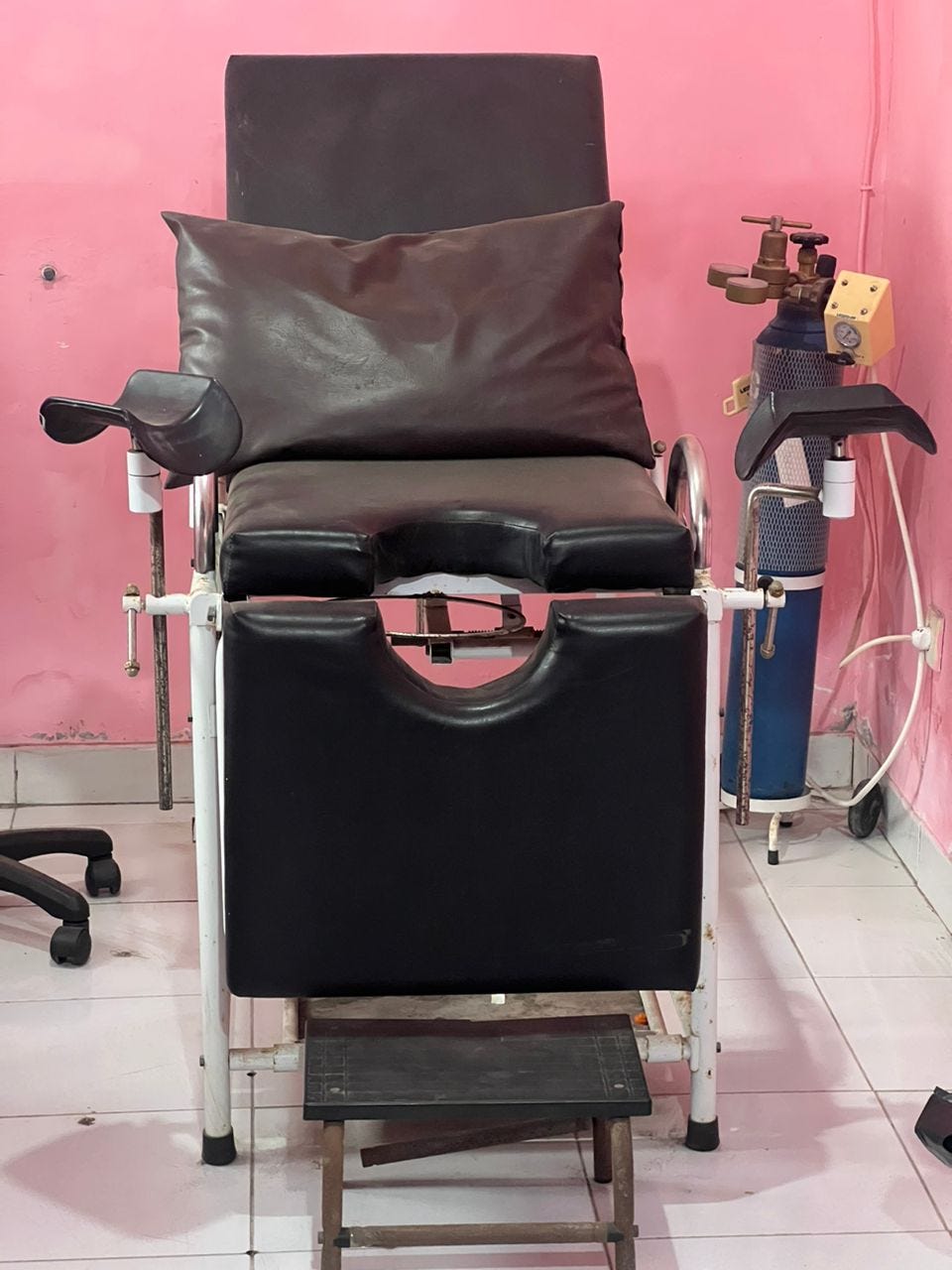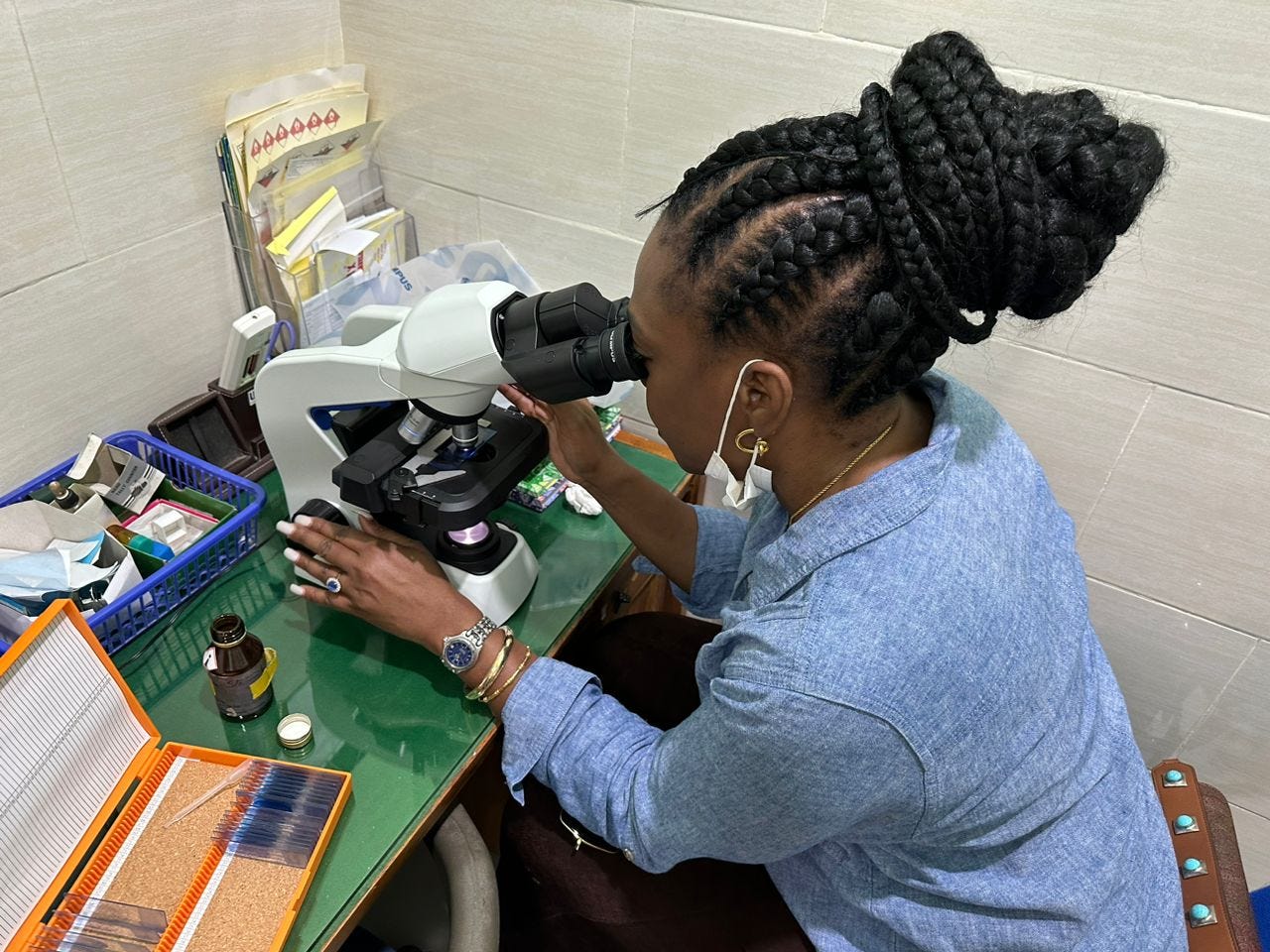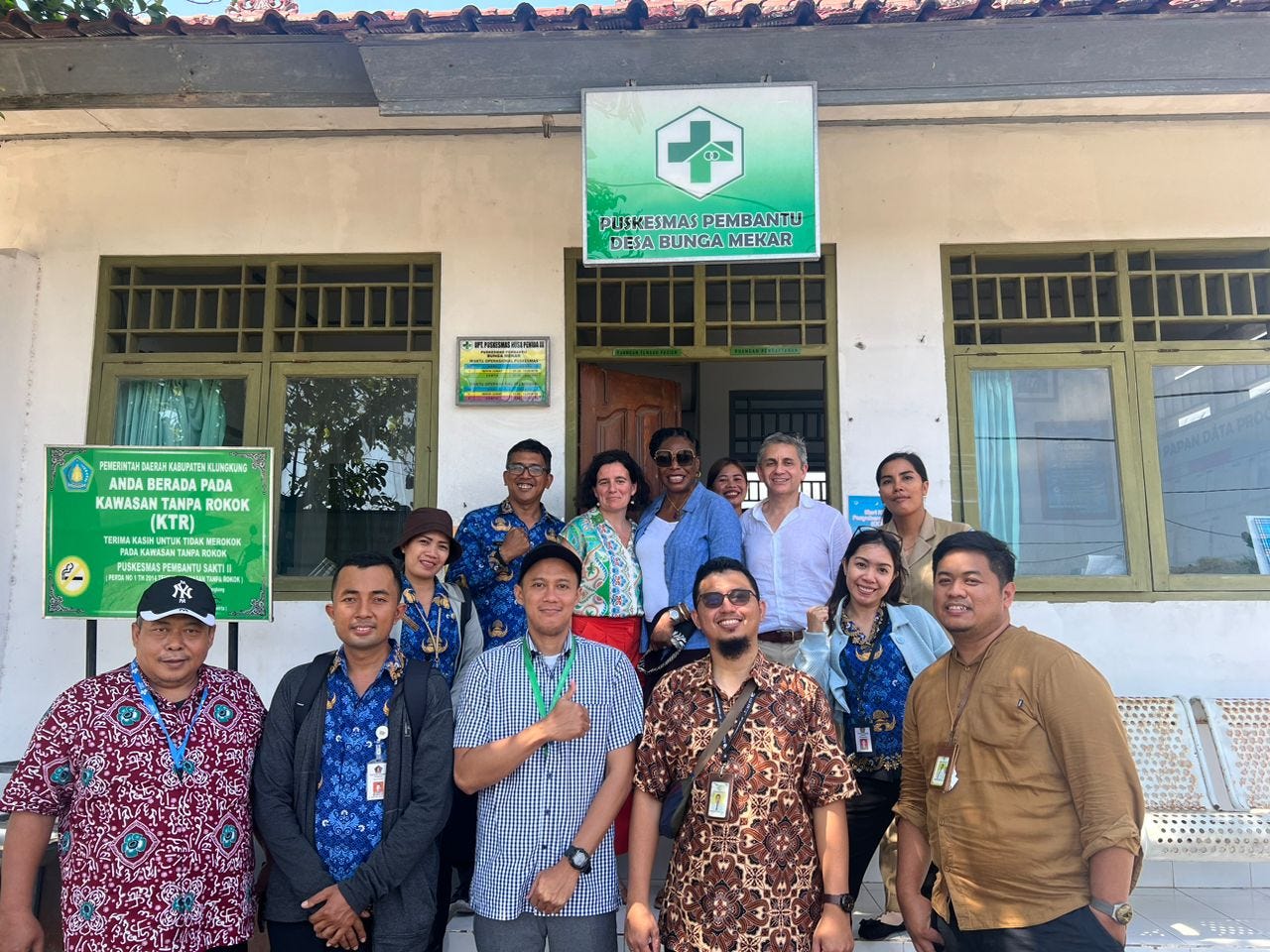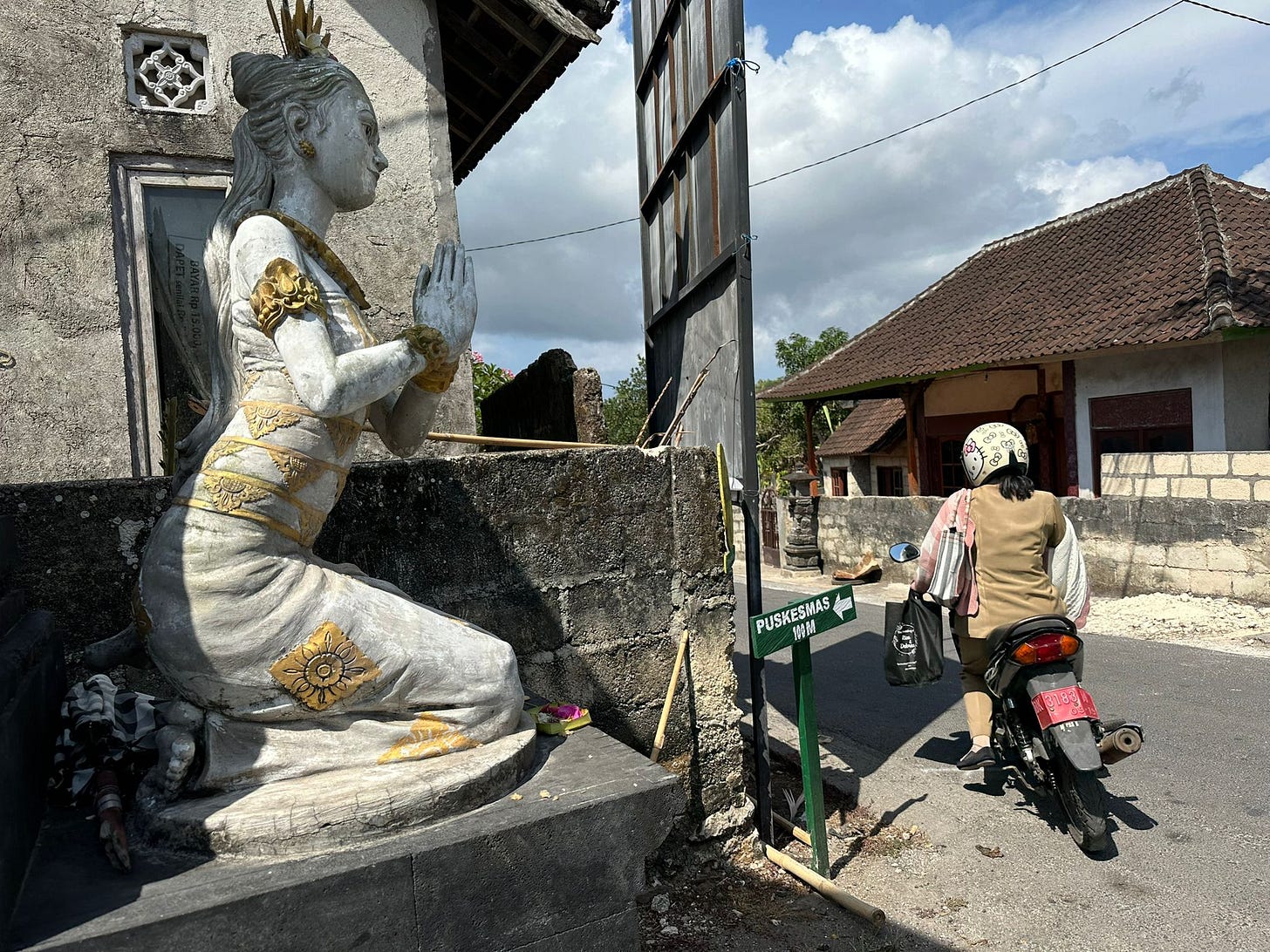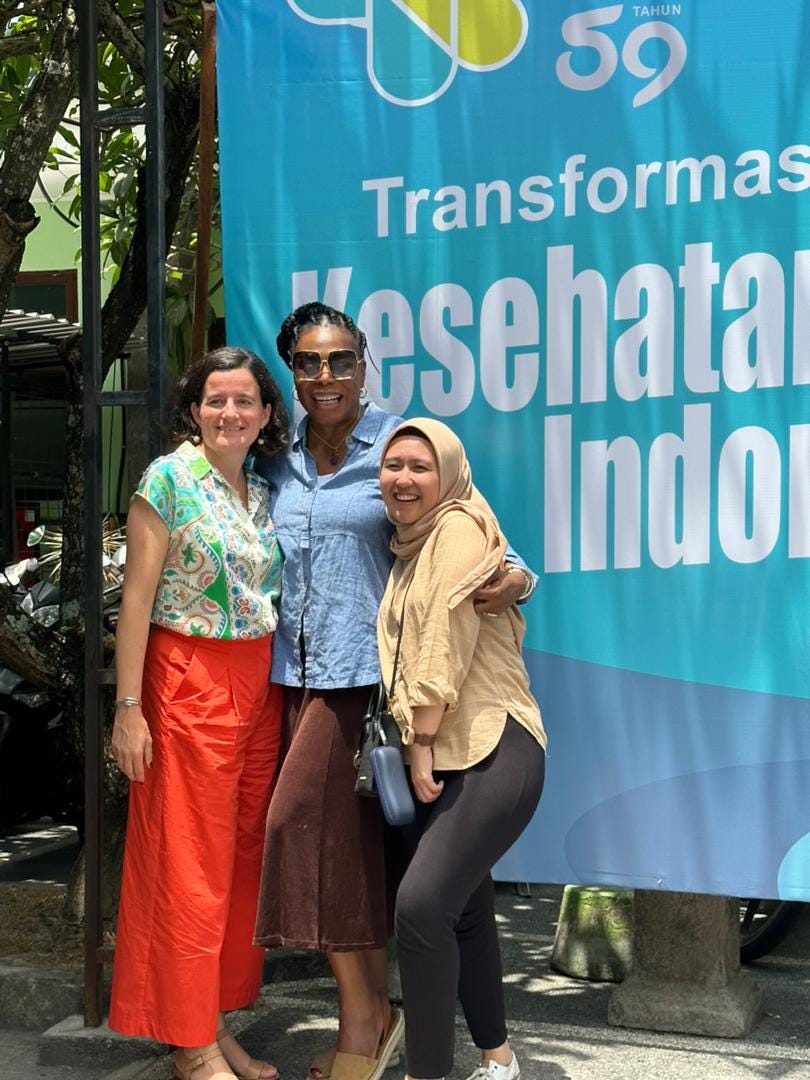From Indonesia With Love: Batiks, Bikes, and South-South Bridges
5 continents, 1 week. As I stepped onto Indonesian soil, not only for a Board meeting as the Chair of FIND but also for workshops and meetings aimed at fostering collaboration with the Indonesian Health Ministry, I couldn't help but marvel at the uncanny reflections of my Nigerian roots in this vast archipelagic splendor. From the warm embrace of the tropics to the bustling sounds of life that mirror the streets of Lagos, Indonesia felt like a distant cousin I was meeting for the first time at a family reunion.
Our workshops in Bali initiated a valuable learning conversation centered on systems and the nurturing of local production capacities. This dialogue was essential in supporting the growth and development of the Indonesian medical device industry. With a focus on understanding and navigating the complexities of PQ-WHO certification, these sessions aimed to bolster the capabilities of the Indonesian Medical Device Industries, the industry association, and the Ministry of Health. This collaborative effort is a vital component in our collective pursuit of elevating local manufacturing practices to align with international standards, a pivotal factor in driving improved healthcare outcomes throughout the Indonesian archipelago and potentially serving as a model for similar advancements globally.
Indonesia shares so much with Africa. The tale of African wax, Dutch Wax, or Hollandais, as intricately woven into our culture as the threads themselves, begins not in Africa but here in Indonesia. The vibrant prints—adorning the markets of Nigeria and many other West African countries—originate from none other than Indonesia. The 1800s saw the Dutch attempting to mimic the Indonesian batik and, in a comical twist, failing to impress the very people whose style they sought to replicate. Yet, these "flawed" prints found a welcoming embrace in the markets of the Gold Coast—present-day Ghana—with their imperfections becoming the life of the fabric party, much to the delight of West Africans.
On an equally amusing note, let's talk about Indomie—a name that rings synonymous with quick, delicious sustenance for any Nigerian, young or old. This culinary staple, found in every Nigerian kitchen from Kano to Calabar and savored as street food, is as authentically Indonesian as batik itself. The mere thought that this quintessential "Nigerian" noodle is not ours to claim sends a humorous shockwave through the collective Nigerian consciousness.
This historical intertwining of our cultures, however, pales in comparison to the potential of a South-South connection that can propel us towards universal health coverage (UHC).
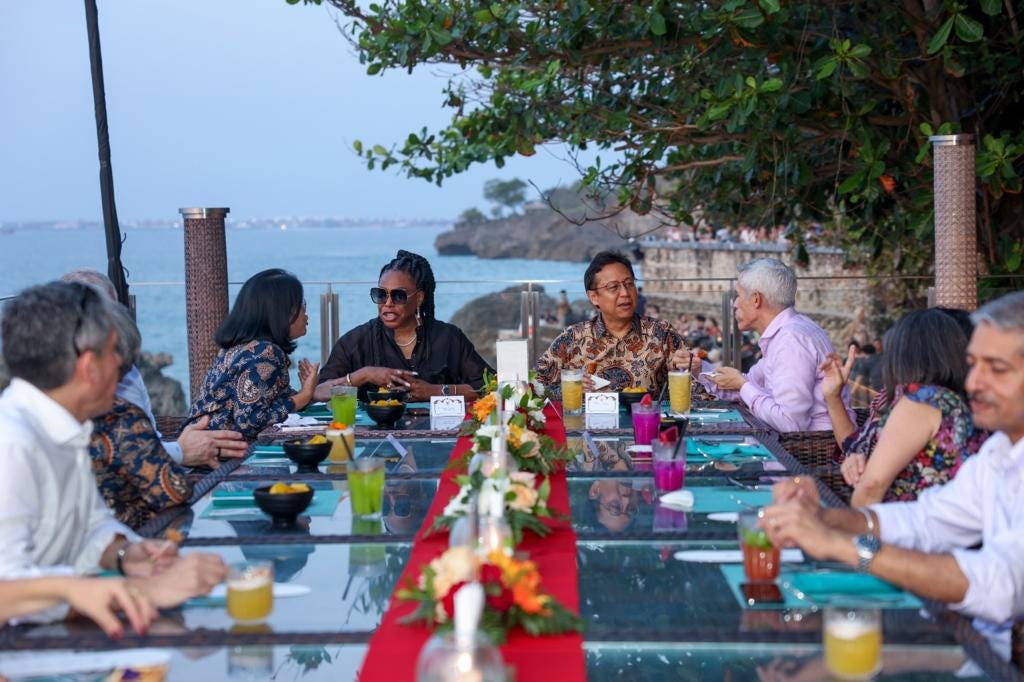
Indonesia, the world's largest archipelago, mirrors Nigeria's diversity with over 700 languages and a sprawling geographic challenge. The commitment to healthcare accessibility here, despite the logistical hurdles of servicing 18,110 islands, is a testament to innovation and determination. Their network of puskesmas—community health centers—is a fifty-year-old initiative that has grown into a robust framework for primary healthcare, emphasizing both preventive and curative medicine. The puskesmas system, with its auxiliary units and mobile clinics, stands as a beacon for countries like Nigeria, seeking to weave a similar fabric of healthcare accessibility across diverse and dispersed populations.
Branching out from the puskesmas, which serves as the primary healthcare center and the backbone of the system, are the auxiliary puskesmas (pustus), integrated health posts (posyandus), mobile puskesmas (pusling), village-level labor/delivery posts (polindes), and village health posts (poskesdes), each playing a vital role in extending healthcare to the farthest reaches of the nation.
Traveling by boat to get to puskesmas many hours away, it was evocative of the beginning of my career in the Pacific islands as we crossed large bodies of water. As I tried to quell sea sickness by looking to the horizon, wishing for the waves to settle so that I would not expel the contents of my stomach, I thought of my own Pacific island Fiji, and the waters they share with this nation.
Seeing the huge sign declaring it to be tsunami territory, it was not lost on me the mount of progress and rebuilding that has happened since 2004, in health as in other sectors.
My identity is a tapestry of many threads: medical doctor, public health expert, humanitarian, Nigerian, African (and if you ask those who have seen me on stage: a very enthusiastic dancer). But central to this weave, I am a woman, and this reality shapes my work in profound and pivotal ways.
As a woman health professional, my experience in Indonesia was more than an observation; it was a personal challenge. It was a confrontation with the realities of healthcare delivery in the most vulnerable parts of the world. In a quiet room, the sight of an old colposcopy chair, much like those back home, became a stark reminder of the untold stories of discomfort and indignity endured by countless women in the pursuit of health. This chair, a relic familiar to my Nigerian roots, stood as a poignant reminder of the journey still ahead in affording women the dignity they deserve in healthcare settings. Yet, it is a sight I meet with gratitude, for it represents at least some level of care, a privilege denied to many in remote areas.
My gratitude deepens when I consider the groundbreaking shift toward self-administered HPV diagnostics—an innovation that promises to eclipse such invasive relics, championing the dignity of women's health. It heralds a future I am eager to witness: one where, upon my return to a puskesmas, I will be greeted not by the cold stare of the colposcopy chair, but by the warm promise of accessible, dignified healthcare.
This is the aspiration driving FIND: to forge partnerships that resonate deeply with the ethos of the Global South, partnerships that bring forth the dawn of accessible diagnostics to the most vulnerable. When a woman in the furthest reaches of the world can take charge of her health with a simple, dignified test, we edge closer to a future where healthcare equity is not just an ideal, but a lived reality for all.
Witnessing the nimble agility of the predominantly female health workforce on motorbikes, their official mode of transportation, as they navigate rural terrains, one is reminded of the Nigerian okada or commercial motorcycle, albeit transformed into two-wheeled chariots of health. These motorbikes, integral to puskesmas primary healthcare (PHC) activities and equipped with cold chain boxes, become lifelines that race against time and terrain. They embody a relentless spirit of service, delivering vaccines and diagnostics to shield both young and old from preventable diseases, ensuring that care reaches those in greatest need, no matter the distance.
Indonesia's healthcare system's resilience, adapting over decades to address challenges while maintaining service delivery, is a narrative of continual improvement. It is a story that underscores the significance of diagnostics availability in remote areas, a cause close to my heart and central to the mission of FIND. Accessible and reliable diagnostics are not just tools but are the cornerstone of transforming PHC into a model for UHC.
In embracing the lessons from Indonesia, African nations, including Nigeria, must seek partnerships with those who have already charted the course towards UHC. Such South-South collaborations are not just beneficial but necessary. They are the conduits for exchanging knowledge, strategies, and support amongst countries that share similar developmental blueprints. The political will to drive investments in healthcare infrastructure is imperative. Leaders must transcend rhetoric, embracing bold, decisive actions focused on development, to realize the aspiration of healthcare for all within our communities. It's time for action that's as bold and spicy as the sambal to our Indomie, as intricate and beautiful as the batik we've so dearly adopted.
The heartbeat of universal health care is echoed in the rhythm of diagnostics; they are the first whispers of understanding in the dialogue between patient and provider. In the sprawling Indonesian archipelago, where waves and winds have crafted a landscape as diverse as its people, diagnostics have become the lifeline, weaving through the fabric of community care. Indonesia’s health system, with its innovative puskesmas network, underscores the profound truth that meeting patients in their communities is not just a service but a covenant of care. This robust network of community health centers, auxiliary units, and mobile clinics is not just infrastructure—it’s a demonstration of health care democracy in action, ensuring that every individual, no matter how remote their dwelling, is seen, heard, and cared for.
In my contemplation of heroism within the realm of global health, my thoughts invariably drift past the customary roll call of well-known benefactors, those institutions and nations celebrated for their largesse. Instead, my mind alights upon the unsung vanguard of healthcare: the community health workers, nurses, and midwives. These are mostly women of indomitable spirit who navigate treacherous mountain paths to deliver life-saving vaccines and essential diagnostics. Their toil is the sinew that binds the remote corners of Indonesia to the heart of its healthcare system.
Take, for instance, Made—a health worker and midwife whose narrative is emblematic of countless others. Daily, Made straddles a motorcycle, carrying precious cargo of vaccines from the better-equipped centers to the outposts. Her journey is a race against time, with only six hours to traverse perilous roads and distribute these medical munitions. She embodies the fortitude of those who deliver babies and ensure mothers receive the care they need amidst a backdrop where a traffic accident looms as the fifth highest cause of death.
How do we appraise Made's contribution to the public health of Indonesia? How do we gauge the worth of her investment, the risk-laden journeys she undertakes with steadfast resolve? The Western world may monopolize the headlines with their contributions, but should we not also recognize the local investments—the time, the treasure, the talent—that catalyze genuine transformation in health systems? The value of thousands like Made, working tirelessly across the Global South, is immeasurable. Their dedication weaves a resilient fabric of healthcare, robust and ready to cover the needs of their nations. It is these personal investments, often made far from the spotlight's glare, that sow the seeds of progress and nurture the growth of a nation's health and well-being.
Throughout my time as a steadfast advocate for development in the Global South, I've encountered a recurring theme: the daunting challenge of a countries’ vastness coupled with the intractability of reaching remote communities. These are not mere logistical hurdles; they are oft-cited barriers that stymie the provision of equitable healthcare. However, Indonesia emerges not just as a counterpoint, but as an exemplar of how perceived obstacles can be metamorphosed into avenues for innovation and progress.
Indonesia's narrative is not defined by its massive size, nor by the thousands of islands and islets that stipple its archipelago. Instead, it is a story of possibilities, of a government's unwavering resolve to weave a network of healthcare that reaches every community, irrespective of distance or difficulty. The expansive nature of the country could have been an excuse for inaction, but it became a catalyst for an ambitious health delivery system. Puskesmas, the community health centers that now dot the islands like stars in a constellation, are a testament to the Indonesian commitment to healthcare access.
The lesson here for many in Africa, and indeed for all of the Global South, is invaluable. The vastness of a country should be viewed as a landscape of potential. Indonesia teaches us that the breadth of a nation can inspire a breadth of solutions, turning the challenge of size into the promise of reach. It is a clarion call for us to reimagine our approach, to embrace our geographical complexities not as constraints but as unique characteristics that can drive us toward innovative healthcare solutions for our communities.
As Chair of the FIND family, I recognise the Indonesian healthcare system as an admirable model in the quest for universal health coverage. I am sure my fellow board members would agree. FIND’s dedication to pioneering diagnostic solutions for the most vulnerable is a shared goal with Indonesia's health triumphs. By harnessing the power of this shared vision, FIND can amplify its impact, leveraging the lessons from Indonesia's success to implement scalable, dignified, and innovative diagnostic services. It is through these channels that diagnostics transcend their role, becoming not just tools but enablers of health equity
.
This enlightening week has solidified one conviction: the Indonesian Health Ministry perceives health as a fundamental investment with real returns. Their understanding aligns with ours at FIND—that investing in primary healthcare, particularly diagnostics, curbs disease, halts its spread, and addresses threats like non-communicable diseases and antimicrobial resistance. The pursuit of a healthy, thriving population has the ultimate return on investment. It is no wonder Indonesia, during its G20 presidency, ardently continued the advocacy for the crucial interplay between health and finance, championing One Health with business cases rooted in science and evidence—a true nexus for global health advancement.
FIND's mission, inherently attuned to the Global South's diagnostic needs, has been enriched by witnessing Indonesia's capabilities. The journey ahead is arduous, as we strive to extend timely healthcare services to vulnerable communities worldwide. Chairing the board of this global institution, particularly as a woman from the Global South, is an honor. It's an opportunity to forge and fortify South-South connections, igniting innovation in the pursuit of health security for all.
Our partnership with the Indonesian government, marked by generous support and the dedication of Ministry personnel, showcased not just the country's healthcare milestones but also its cultural jewels—from Bali's splendor to the heart of its diverse regions.
As I depart from Indonesia, I carry with me not just memories but a renewed conviction. The journey to UHC is complex, fraught with challenges unique to each nation's fabric. Yet, it is within these challenges that we find the threads of innovation and resilience.
Through the lens of South-South collaboration, the Global South, including countries like my own Nigeria can weave their own success stories, ensuring that healthcare, much like the beloved batik and Indomie, becomes a staple in every home.




